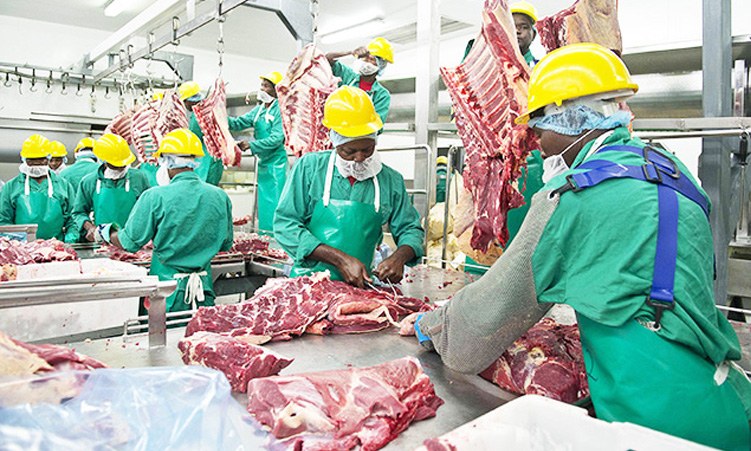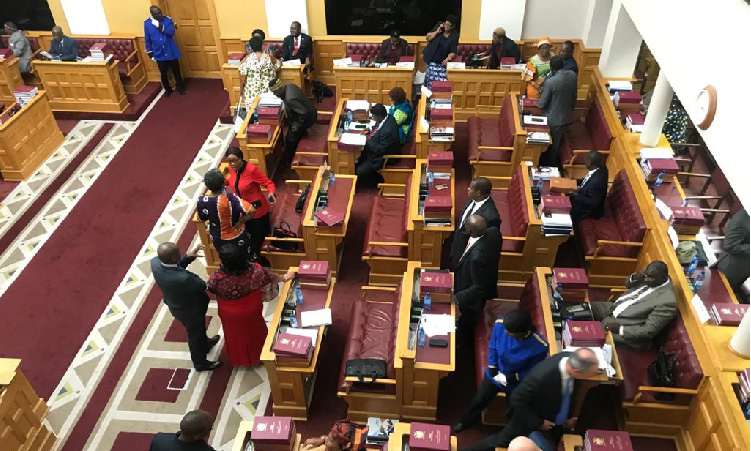THE risk of rising claims from severe weather events has prompted global insurers to warn that the continued availability of widespread insurance depends on taking immediate action to mitigate climate change and adapt to its effects.
The Association of British Insurers earlier this month said a 2176C rise in average global temperatures – described as ‘inevitable’ – would raise the UK’s average annual insured losses from inland flooding by eight per cent, or £47 million (N$588 million). Additional insurance capital of £1,65 billion would be required, potentially leading to a drop in the availability of cover and making insurance more expensive and harder to get.Comparative figures for South Africa are not available. The local insurance industry is only starting to get to grips with the risks and opportunities linked to climate change.’It’s still very early days,’ says Auto & General chief executive Leon Vermaak. ‘I don’t believe there’s a concerted effort from the insurance industry. We’re aware of the issue but not quite sure what to do.’South Africa’s largest short-term insurer, Santam, seems to be leading the pack, having joined ClimateWise, a global initiative to collaborate on climate change that counts the world’s top insurers as members.Santam is in the process of gathering data to better understand the impact of climate change on clients and to propose solutions to mitigate these risks, says Hendri Nigrini, the executive head of risk services.Santam has launched a pilot project in Knysna, which has suffered a rise in the frequency of floods in the past six years, to gather data and align its underwriting and claims processes accordingly. The initiative will be expanded to include the rest of South Africa and NamibiaBROADER IMPACTBut climate change is not just an issue for short-term insurers, which typically provide cover for liability and assets. It could also impact on the health of clients, forcing long-term life insurers to address the issue.Old Mutual pointed out in the 2009 Carbon Disclosure Project for the JSE’s top 100 companies: ‘Shifting disease vectors will have an impact on mortality rates with knock-on effects for actuarial tables.’A recent UN Environmental Programme Finance Initiative report on sustainable insurance found that systemic risks posed by many environmental, social and governance factors could undermine the solvency of insurance companies and the long-term economic health of the insurance industry. David Bresch, the head of sustainability and emerging risk management at Swiss Re, says South Africa needs to undertake its own study to identify where the greatest climate risks are located and how big the losses might be.’It will then be in a position to prioritise investment to reduce exposure to climate change and support local economic development,’ he says, adding that it’s better for governments to make early investments in climate adaptation, including insurance, rather than face major budget deficits in managing disaster relief after a severe weather event.As the world’s second-largest reinsurer, Swiss Re would be exposed to extreme weather events, and so it’s not surprising to find it was the lead research contributor in a recent report on the economics of climate adaptation.Rather than giving global estimates of required adaptation funding, the report took a ‘bottom up’ approach by looking at different climate risks in eight locations around the world.It found that poor adaptation to climate was already destroying considerable economic value – between one per cent and 12 per cent of overall gross national product – but that economies could adapt if cost-effective measures were taken sooner rather than later.This prompted Lord Nicholas Stern, the chairman of the London School of Economics’s climate change research group, to say in the report’s foreword that impact from climate ‘is not just a future concern, although the scale of possible future climate change could dwarf these losses’.Bresch says global claims due to natural catastrophes are growing, although he cautions it’s not possible to make a simple connection to climate change because rising claims are also due to an increase in the value of assets insured.According to the 2009 Chartered Insurance study, rough estimates for the maximum possible loss to insurers could be 50 per cent greater for floods and 30 per cent greater for storms, assuming no climate change adaptation measures. Local short-term insurers are noting more weather-related claims. Vermaak says. – Business Report
Stay informed with The Namibian – your source for credible journalism. Get in-depth reporting and opinions for
only N$85 a month. Invest in journalism, invest in democracy –
Subscribe Now!









